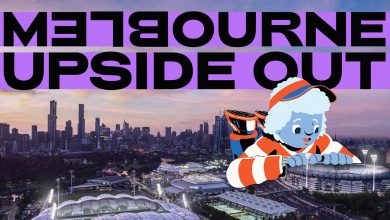MANILA – Facebook and Mano Amiga Philippines held the first Think Before You Share Digital Youth Summit from October 5 to 7. The summit was the first step in a coordinated program by Facebook and Mano Amiga Philippines to boost digital literacy and build a safe and informed online community in the Philippines.
The three-day Summit brought together 70 student leaders, social innovators, community developers and tech enthusiasts, representing 22 groups from across the Philippines to equip them with critical thinking skills and help them to be responsible digital citizens. Approximately 80% of the participants came from outside Metro Manila — with the majority of entries coming from Mindanao.
Participants were selected from over 150 submissions of community campaigns that address digital literacy in their communities. The submissions covered a variety of programs that participants identified as a key issue from local environmental challenges, to mental health, to combating false news, to creating campaigns that will support the breakdown of cultural stereotypes.
Clair Deevy, Head of Community Affairs for Facebook APAC, said; “There are 66 million people on Facebook in the Philippines and we are committed to helping keep our community inspired and empowered. The youth leaders who participated in the summit are working on truly inspiring campaigns, and we hope the workshops, discussions, and learnings over the course of the three days will help these campaigns flourish.”
During the Summit, participants worked with mentors to refine these community campaigns so they can execute them in their respective communities over four months. Participants were also tasked to pitch these ideas in front of judges and fellow participants. Bagging the top five spots to garner funding and mentoring from Facebook and Mano Amiga were: Take It Topless, Inhinyeras, Prism, I Am Marshall, and Techno Leads.
Take it Topless’s Micah Jude Cinco proposed a social campaign against the use of plastic beverage lids. Through the campaign, the group encourages people to take photos when they buy beverages without lids, or when they opt to use a reusable cup, along with the hashtag #TakeItTopless.
“The Take It Topless campaign is channeled through social media because it’s the most efficient way to reach our target audience. We encourage people to take photos when they buy their coffee without lids, or when they opt to use a reusable cup, along with the hashtag #TakeItTopless. Posts like these are viewed by the exponential number of young people who use Facebook and Instagram on a daily basis. When it becomes a trend, many people will likely want to be part of it. Not only does environmental consciousness become common, it also becomes ‘cool’ and ‘trendy’ in the eyes of the digital-savvy millennials,” said Micah Jude Cinco.
Inhinyeras, a team of female engineers, aspire to eliminate gender inequality and change the perception of women engaged in STEM. Through their online campaign, they want to give young women the opportunity to explore and build interest in technology-related matters like engineering while empowering them to reach their full potential.
“Discrimination among women is one of the barriers that hinder most females from performing excellently and discourages young girls to take a course in STEM or computer science. Being females in a male-dominated field like engineering, we hope to eliminate gender inequality and change the perception on women engaged in STEM. Our platform seeks to give young women the opportunity to explore and build an interest in STEM and empower them to succeed,” said the group.
Meanwhile, Prism is a group aiming to create an online community built on online persona “Tita Amiga” whose main goal is to educate the youth and cultivate a sense of belonging. Through the hashtags #DearTita, #WhatWouldTitaDo, #ThinkLikeTita, #TitaThoughts, and #TitaTips, they hope to encourage positive dialogue on issues affecting today’s youth.
Also winning the judges’ hearts is animal welfare advocate Aaron Nathan Ifurung’s proposal which aims to generate awareness on animal adoption by building on the famous hashtag “#AdoptDontShop” and conceptualizing an app inspired by a popular dating app which would match animal lovers with the dog of their dreams.
Meanwhile, Techno Leads, a team of student leaders taking up IT, Programming, and Web Development, aims to educate social media users on Facebook on how to determine whether a news or article is reliable or not. They intend to make a page on Facebook that shares only verified and reliable news and articles coming from reliable sources and tips on how to spot false news stories.
Also receiving a special citation and the High Potential Award is Kalilintad, a group of Muslims from Marawi whose campaign is hinged on using social media as a medium of peace, understanding, respect and unity in diversity among the Filipino people.
When asked about the campaign, the team shared: “The Internet is a popular platform for exchange of thoughts and opinions; why not use it for a positive campaign? Our proposal may not just be for Muslims but also for those who have experienced discrimination. We hope that our campaign in the long-term will result in an equal, just, and peace-loving country with citizens who help each other in one way or another despite being from different tribes, religions, beliefs and traditions.”
The Summit program also included talks from notable speakers and personalities including Executive Director of Save Philippine Seas Anna Oposa who talked about how social media can support social good campaigns, TV personality and author Bianca Gonzalez who shared how she manages cyber bulling and how she focuses on creating positive online content, and Karen Dávila who shared insights into the role of media in today’s social media environment.
In addition to the Youth Summit, Facebook and Mano Amiga Philippines will also run a five-week digital literacy program that includes specialized training for teachers as well as practical workshops for students and their parents. Developed with MediaSmarts and the Department of Education’s learning competencies, the program will have a pilot run for 100 low-income students and their families, before scaling it to other communities across the country.
Eleanor Pinugu, Mano Amiga Philippines Executive Director, said: “Educators are faced with the critical role of ensuring that young people are equipped with the knowledge, skills, and values they need to thrive in a globally connected world. Mano Amiga Philippines is committed to building an ecosystem of programs, tools, and resources that are tailored to the local setting, and will enable the Filipino youth to engage with online platforms as ethical and well-informed digital citizens.”
Facebook is committed to improving digital literacy in the Philippines. It held Safety Education Workshops in Manila, Davao and Cebu last year, as well as a Digital Halo Halo Hackathon to develop tools, products, and services to promote positive online engagement and dialogue.









